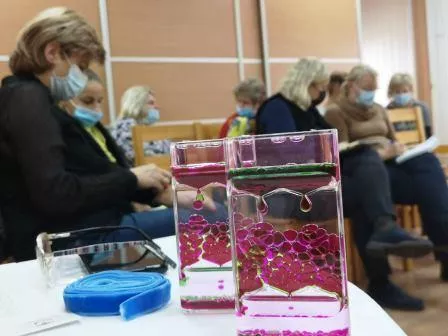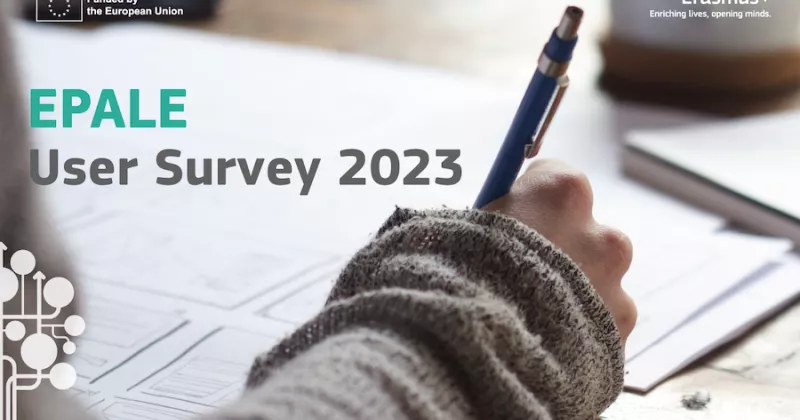The partnership between teachers, childcare professionals and parents in implementing peace education ideas
Have you ever wondered what a world without bullying, violence and war would look like? Will you say it is a utopia? Yes, the world would probably be like Thomas More's novel Utopia (Latin: De Optimo Reipublicae Statu deque Nova Insula Utopia), in which, based on ancient thinkers, the writer created an image of an ideal society based on democracy. To be honest, in Thomas More's imagination, such a utopian place is just an island, not the whole world. The novel introduces the system of education and upbringing of children, dominates the system of equality, freedom, joint work and sharing of its results, and honesty and simplicity emerge as the most important values of life. Interestingly, Utopia was published in Latin in 1516, in the 16th century. It was translated into English in the middle of the 16th century, and in the 16th and 18th centuries it was translated into various languages. Why is it worth remembering this book right now?
The association arose by reflecting the results of the Erasmus + project PEEC and conducting training in early childhood education institutions. The PEEC (Peace Education in Early Childhood to Prevent Bullying) project has developed an international training program for early childhood teachers and childcare professionals. It is complemented by existing peace education practices in partner countries that promote equality, diversity and inclusion. After conducting a survey of early education practitioners and identifying innovative practices, valuable literature was selected and, as a result, a violence and bullying prevention program was developed. This program pays special attention to value education. Interestingly, as the world changed, many of the values raised by Thomas More in the 16th century also proved important to the PEEC project partners.

How can the material developed during the PEEC project help to develop eternal values and create a world free from bullying, violence and war? The project's Methodologies guidelines for peace education (https://epale.ec.europa.eu/lt/resource-centre/content/taikos-ugdymo-metodikos-gaires) provide a theoretical basis for value education. The target group for these guidelines is early childhood teachers, childcare professionals and parents, that is, the whole community. The authors of the guidelines Jana Goldberg, Elvira Sánchez Igual, Renata Jankevičienė, Begoña Arenas Romero, Ivana Kragić, give recommendations on how parents can contribute to value education, they offer parents to carry out daily activities with their children and build beautiful communication relationships.
Some tips and advice for parents
• Develop a correct personal identity to face situations in which they are discriminated against: not accepting the situation, understanding that teasing is usually the result of ignorance, offering resources so that their emotional stability is not affected, etc. Strong personal identity is the basis for building high self-esteem which also helps the child to combat discriminatory acts towards other people.
• Value and respect himself as a member of all the social groups to which he belongs: sex, family, class, school, city, autonomous community, country, etc.
• Know and value one's own origin, learning aspects of his culture and his history, about his race or religion, the history of his family, etc.
• Know, value and respect people who belong to different groups.
• Parents can make sure they meet different people by attending sports events for disabled people: wheelchair basketball, football for the blind, etc.
• Encourage contacts with children of other races, cultures, religions, etc. Comment on the similarities and differences that you have with other children, the positive aspects of those social groups, etc.
• Know the art, gastronomy and customs of other cultures.
• Identify the ideas and prejudices that may be forming to intervene with the aim of modifying them. Talk about the stereotypes, prejudices and social injustices suffered by people who belong to certain groups.
•I ntervene when prejudices appear in the media (news, movies, television series, cartoons, etc.)
• Read with the child popular stories from other cultures and comment on them. Read stories and fables that promote values such as tolerance, indulgence, respect, etc.
• Convert the family environment into a positive role model.
Thomas More wrote in Utopia: “Every day, lunch and dinner are begun with a reading that teaches morality, but a short one not to bother. Then the older ones start serious speeches, just not sad but witty. But while eating they do not in any way engage themselves in long deliberations; they like to listen to young people as well and even encourage them to talk in order to get to know everyone's abilities and talents ... ”.
Both the philosophical examples of Thomas More and the PEEC methodology of the project reveal the importance of positive examples of the immediate environment, communication and cooperation with the child in creating a safe world based on empathy, cultural diversity, solidarity, dialogue, gender equality and respect. The international PEEC project implementation team believes that by giving our time to children and laying the foundations for value education, we can create a world without bullying and violence, a world where all conflicts are resolved peacefully.
Practical value education material (in English, Spanish, Lithuanian and German) for teachers and childcare professionals can be found on the project website: http://peec-online.eu/outputs/classroom-activities/.
The project Peace Education in Early Childhood to Prevent Bullying, PEEC, No. 2019-1-DE02-KA202-006124, funded by the European Commission, is implemented by the following bodies: JOHANNITER-UNFALL- HILFE EV (coordinators, Germany); Asociacion Mundial de Educadores Infantiles, Spain; Innovation training Center S. L., Spain; Panevėžys District Education Center, Lithuania; The study is based on an informal approach to criticism and philosophy and practice in Mala philosophy, Croatia.
Renata Jankevičienė, Deputy Director of Panevėžys District Education Center, PEEC project activities coordinator in Lithuania, EPALE expert



